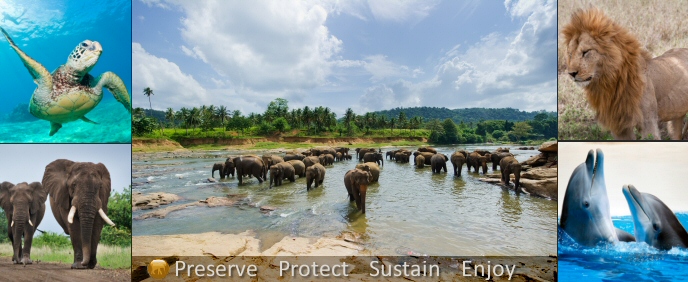
Eco Tours in the US Virgin Islands - Sustainable Tourism & Conservation Laws
The US Virgin Islands are what is known as an "insular area" of the United States. The islands pay taxes, they are citizens of the United States, and as such are restricted by the same environmental laws of the United States. While the Virgin Islands have their own Department of Environmental Protection, they are still overseen by the Environmental Protection Agency and are held to the same standards as all US states and territories. There are not many unique environmental protection laws in place here, and they mostly rely on the Federal laws put in place to govern much of their wild places. However, there are a few Federal laws that are of special note for anyone that is interested in visiting these islands for a holiday.
First, the Marine Mammal Protection Act is important for all tourists to keep in mind. Since snorkeling and SCUBA are extremely popular activities here, anyone heading out to the water should understand what the proper measures are for encounters with marine mammals. The law expressly prohibits the taking of marine mammals. The problem that many tourists find themselves encountering is that different people have different interpretations on what "taking" means. By the definition set forth by this particular law, "taking" is defined by not only the hunting of marine mammals, but the harassment of them as well. This means that anything a tourist does that can interfere with the natural lifestyle of a marine mammal could be subject to fines as a result of their actions. Due to this, it's important for all tourists to maintain a common-sense approach to interactions with marine mammals during their stay. If a marine mammal approaches a tourist while he or she is in the water, that tourist has nothing to worry about. However, if tourists chase marine mammals in the hopes of getting better pictures of them, this qualifies as harassment and is against the law.
Second, the Federal Land Policy Management Act of 1976 is of significant importance for all tourists. The act basically lays the framework for the public input of local residents in environmental management affairs. This means a number of different things. First, it means that local governing bodies take a very active roll in deciding what conservation measures they want to put into place. Secondly, and most importantly for tourists, it creates a situation where different areas can have different laws governing the way tourists interact with the local environment. This can be problematic for the tourist that is not entirely aware of the local regulations regarding their chosen activity, and should therefore be sorted out upon arrival. These regulations can be best understood by visiting the Department of Environmental Protection website for the US Virgin Islands.
Overall, the Virgin Islands are one of the most popular destinations for United States travelers that want the feel of the tropics without having to buy a visa or worry about customs. While the landscape itself is very gorgeous, it is all second growth. This is because the entire place was completely clear-cut in the early years of United States occupation to make way for immense sugar cane fields. Literally every part of the islands have been forested, making the landscape fairly unique to the region. It does, however, have some of the most popular beaches under United States jurisdiction, and kayaking around the islands is fairly easy. In fact, the tides around the islands are so calm that even some elderly people can circumnavigate the islands in a kayak. Despite the deforestation issues, there are still a lot of great places to visit on land as well.
In the end, visiting the US Virgin Islands will not present anything to western tourists that they are not already familiar with in terms of laws. The basic tenants of "leave no trace" are followed to the extreme on these islands, in part to make up for the significant amount of ecological damage that has already been visited upon them. Despite these early problems that had an irrevocable effect on the natural landscape, the US Virgin Islands have come a long way from that troubled past to become an ecotourism destination unlike any other in US jurisdiction.

